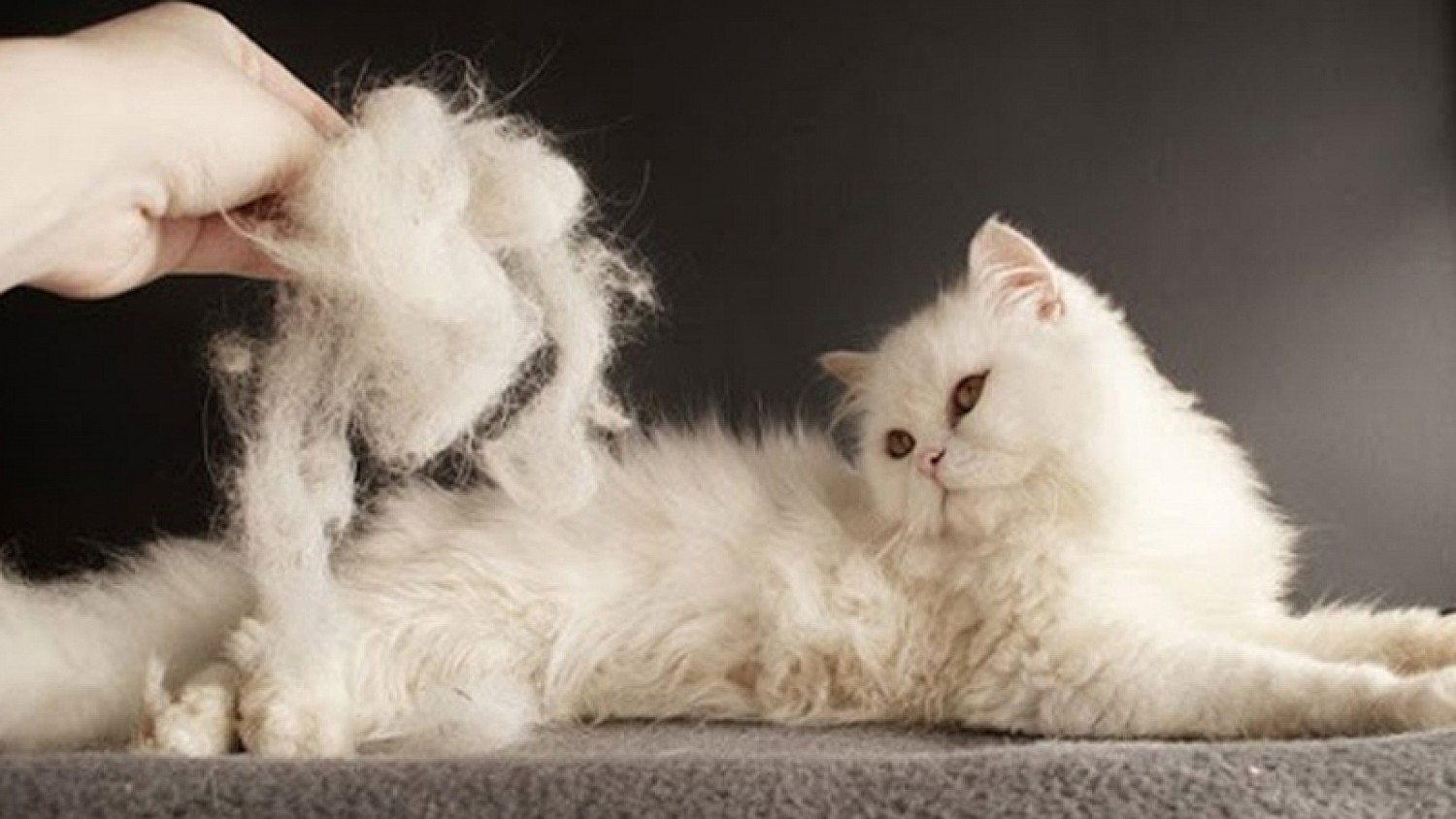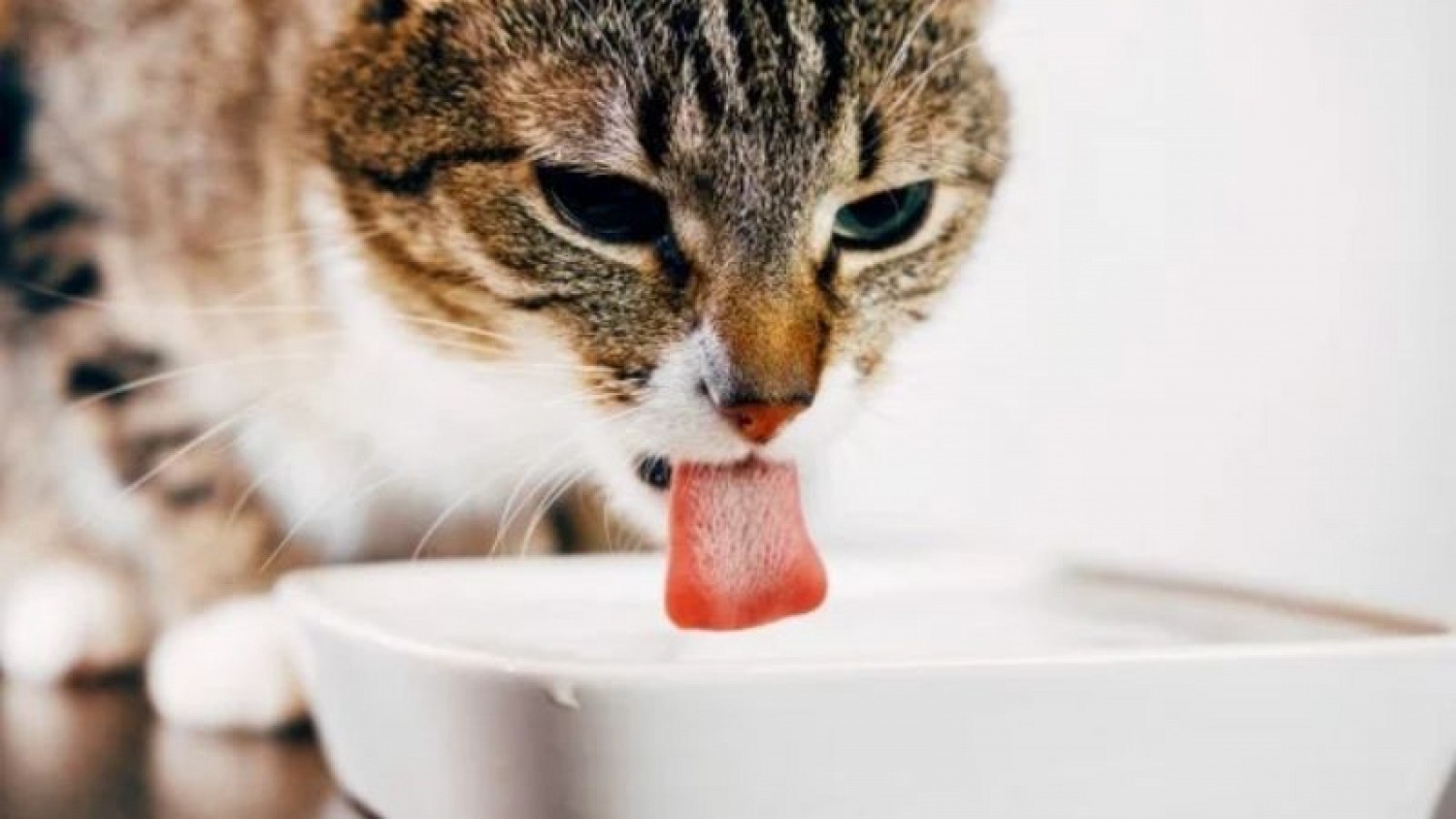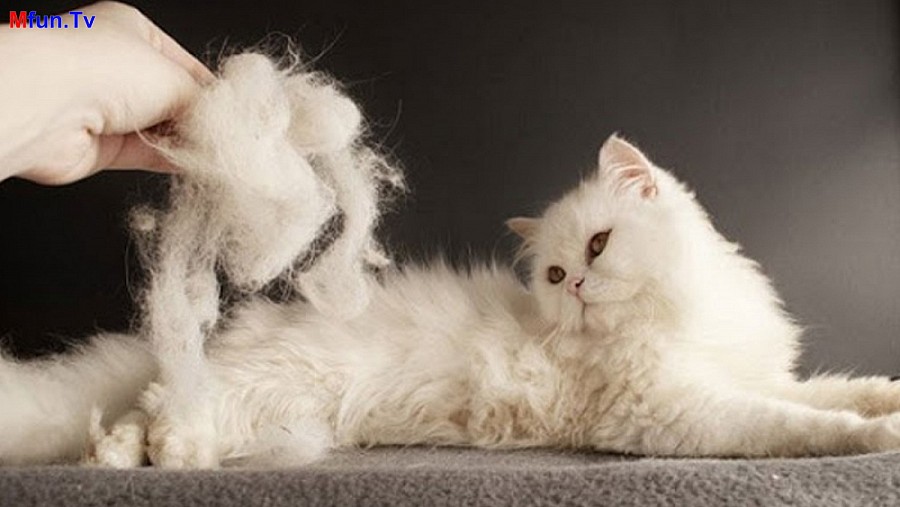Cat molting is a normal and natural phenomenon during the annual molt. However, excessive or irregular shedding can be a sign of a number of health problems.
1. Cat hair loss: Is it a disease or not?
Cat shedding is not a disease, it's a natural part of their molt cycle. But if your cat sheds excessively or suddenly, it could be a sign of a health problem, such as a nutritional problem, skin disease, infection, or other health problem.

Therefore, if your cat sheds excessively or has other unusual symptoms such as itching, scaling, redness, swelling, or changes in eating or playing behavior, take them to the veterinarian to have them checked. check. investigate and determine the specific cause.
2. Causes and symptoms of hair loss in cats
There are several possible reasons why your cat's hair is shedding more than usual:
- Seasonal change: In winter, cats will grow more hair to keep warm, when spring comes, old hair will fall out to make room for new hair.
- Diet: An irregular diet or lack of protein can cause hair to be weak and fall out a lot.
- Illnesses: Certain illnesses such as parasitic infections, fungal skin infections or endocrine diseases can cause hair to fall out more than usual.
- Stress: Cats can also shed more hair when stressed, due to environmental changes, moving house, losing an owner, or being bullied by other animals.
The manifestation of cat shedding is usually a lot of hair loss, especially during the shedding season. This not only causes hair to fall out all over the house, but also makes the cat's skin more sensitive, prone to itching and rashes. Also, if your cat sheds too much, it could be a sign of a health problem that needs to be checked and treated promptly.
3.How to treat cat hair loss

To help your cat minimize shedding and maintain a healthy coat, you can apply some of the following treatments:
- Provides a nutrient-rich and high-protein diet to support your cat's coat health.
- Brush your cat regularly, especially during the shedding season to remove excess hair and stimulate new hair growth.
- Provide your cat with food rich in Omega-3 and Omega-6, or supplement with food that contains nutrients for the coat.
- Supplement essential vitamins and minerals to help keep hair strong and soft. One product that vets recommend is Cat Hair Cream You should give your lovely cat this wonderful gift.
- Use specialized skin and coat care products for cats to help protect and maintain the health of the coat.
- Reduce stress for cats by creating a comfortable, safe, and well-groomed environment.
If your cat's hair loss is a lot and does not decrease after applying the above measures, you should take your cat to the veterinarian to check and treat the condition of the cat's coat.


